“Over 2,000 residents and community members have expressed extreme concern for its lack of consideration for connectivity, the natural environment, affordability and infrastructure impact.”


“Over 2,000 residents and community members have expressed extreme concern for its lack of consideration for connectivity, the natural environment, affordability and infrastructure impact.”
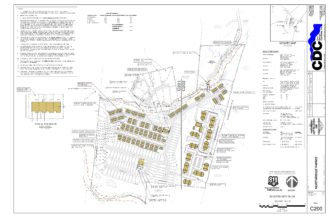
The proposed development on 88.12 acres would include 118 single-family homes, 163 townhomes or casitas and 296 multifamily apartments across 11 buildings. The single-family homes would be for sale; all other units would be rented out.
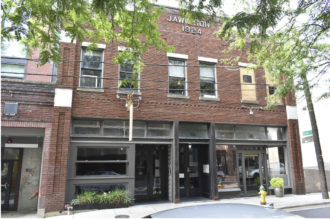
At the Asheville Planning and Zoning Commission meeting at 5 p.m. Wednesday, Dec. 7., Alex Cole of the city’s Planning and Urban Design department will share new details on the African American Heritage Resource Survey and Burton Street Architectural Survey.
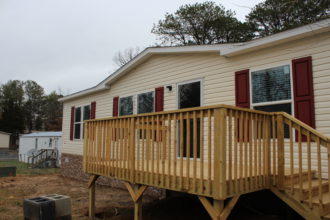
Currently, Asheville prohibits the replacement of any manufactured home by another after its spot has been vacant for 180 days. City planners want to ease that rule and others to “stop the slow attrition of affordable housing units that are desperately needed in our community.”
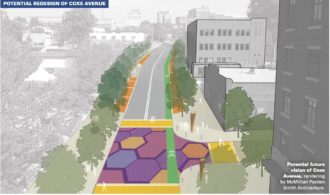
The plan, to be considered by Asheville’s Planning and Zoning Commission July 6, contains ten key initiatives, including a gateway to reconnect McCormick Field and Memorial Stadium with downtown, public art installations, commemoration of the neighborhood’s African American history, affordable housing and transforming Coxe Avenue into a tree-lined “green Main Street.”
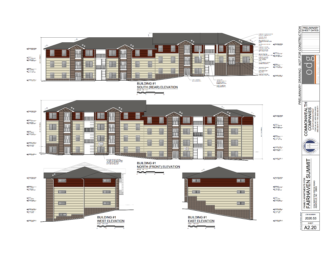
Fairhaven Summit Apartments would bring a 77-unit multifamily affordable housing complex to 7.68 acres off Sweeten Creek Road. All of the 12 one-bedroom units, 25 two-bedroom units and 40 three-bedroom units planned for the development would be guaranteed as affordable for households earning between 30% and 80% of the average median income for a minimum of 30 years.

Three governmental bodies are critical to the fate of large-scale development in the city: Asheville City Council, the Design Review Committee and the Planning and Zoning Commission. Find out more about what each group does and how to weigh in on its decisions.
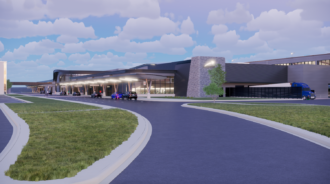
The Buncombe County Board of Adjustment will consider a special use permit for a proposed terminal expansion at the Asheville Regional Airport Wednesday, May 11.
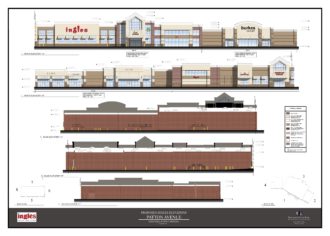
The company intends to construct an 89,000-square-foot Ingles Market at the former Kmart location on Patton Avenue, along with a 6,500-square-foot Ingles pump station and 55,000 square feet of additional retail space.
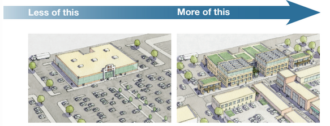
The city’s urban centers initiative, as well as updates to open-space requirements for new projects, are meant to encourage denser development patterns, supporting less car-dependent communities and increasing the city’s tax base.
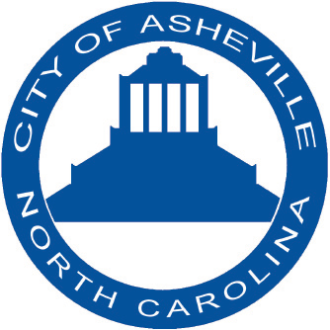
Members will hear public comment on a proposed 130,000-square-foot warehouse and distribution facility in Enka — a plan that previously drew criticism from thousands of community members worried the facility would mean the demise of the 139-foot Enka Clock Tower.

Asheville City Council will take a brief respite from conversations about policing and budgets to consider new standards for tree canopy preservation at its meeting of Tuesday, Aug. 25. Three public hearings will address different parts of the proposed standards.
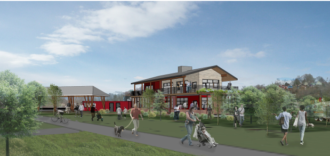
Asheville’s Planning and Zoning Commission recommended to deny conditional zoning for Jettie Rae’s, a seafood restaurant proposed along the French Broad River. Asheville City Council will make the final decision on whether the project will receive approval.

Two lodging projects will be up for debate: a 56-room hotel spread across four buildings on Biltmore Avenue downtown and a 170-room project on Fairview Road in Biltmore Village. The first proposes to convert three historic houses into accommodations and construct a new five-story structure with a restaurant, while the second would build a new six-story building.
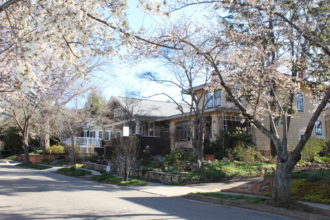
In its first known formal engagement with Asheville, Airbnb sent two of its representatives to an Oct. 23 discussion of homestay regulations sponsored by the Homestay Network, a local group representing over 600 legally permitted homestay hosts. The firm has also committed to another meeting of over 50 stakeholders on Tuesday, Dec. 11.

Although the exact footprint of the building is still under consideration, existing plans call for a first floor of businesses (16,000 square feet in total) topped by 26 efficiency, 93 one-bedroom and 61 two-bedroom apartments. A total of 327 parking spaces, some underground, would service the complex.
It was a lengthy session for Asheville City Council on Aug. 28, and it’s not technically over: Council will reconvene Thursday, Aug. 30, at 4 p.m. to discuss changing the language of the water system referendum. At Tuesday’s meeting, Council appointed Joe Minicozzi and Holly Shriner to the powerful Planning and Zoning commission, among many other matters.
The appointment of two members to the powerful Planning and Zoning Commission and a slew of reports are on the agenda for Asheville City Council’s meeting tomorrow night, Aug. 28.

Jane Mathews, Christie Carter, and Jeremy Goldstein are Asheville’s newest Planning and Zoning Commission members.

Before this evening’s regular City Council meeting, members interviewed nine candidates for three open seats on the Planning and Zoning Commission. Here’s a roundup of Twitter dispatches from the interviews.

Follow live Twitter coverage of Asheville City Council’s Aug. 23 meeting, including a vote on new rules allowing food trucks in downtown and the pre-meeting interviews of candidates for the Planning and Zoning Commission.